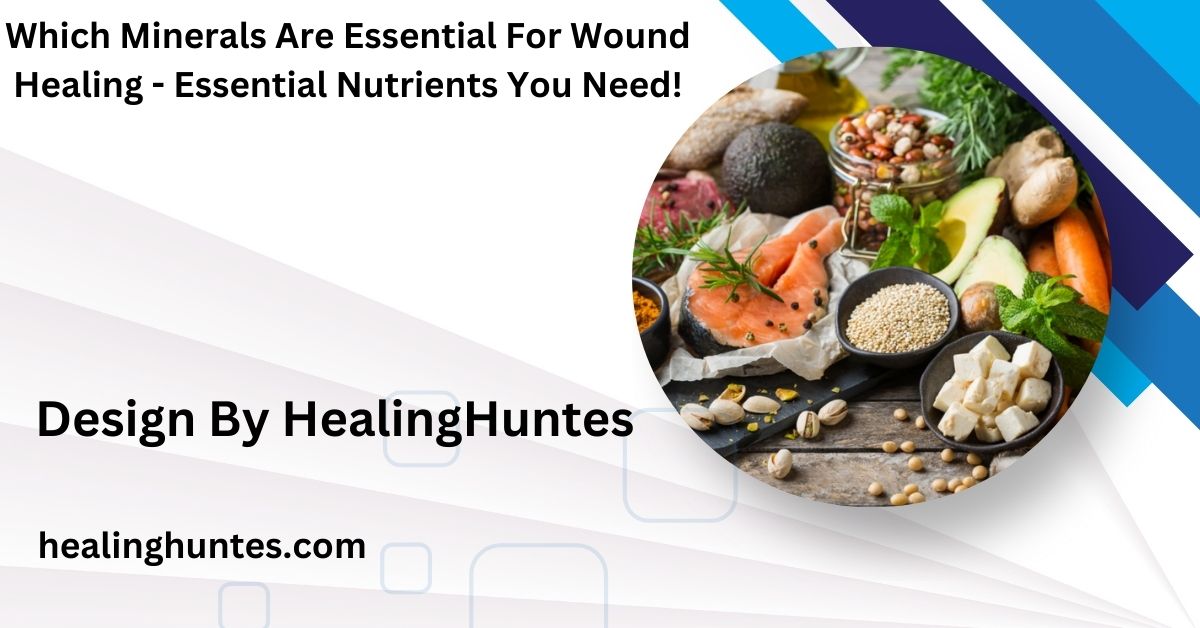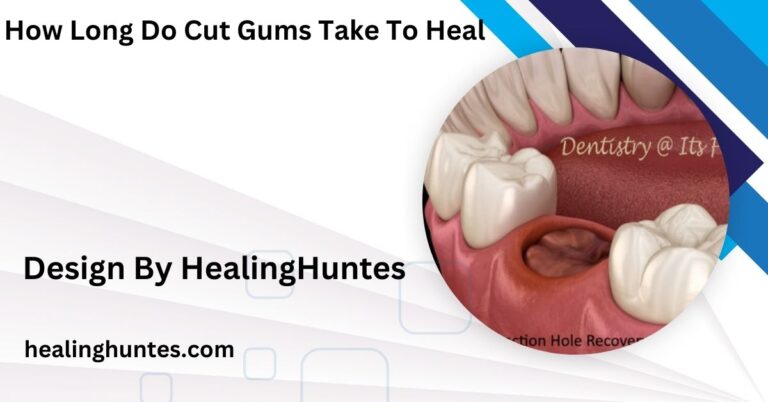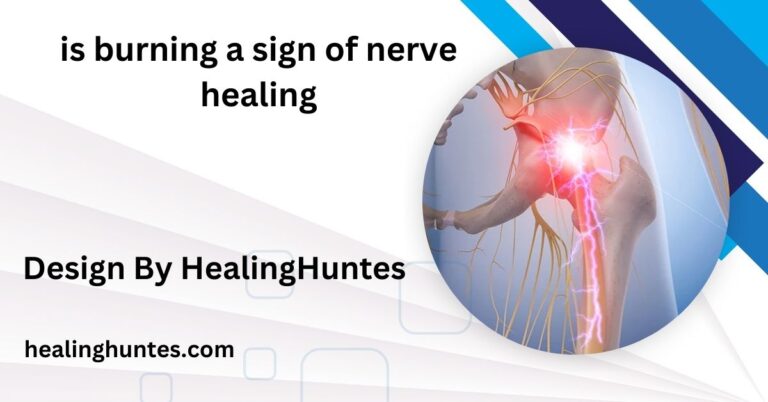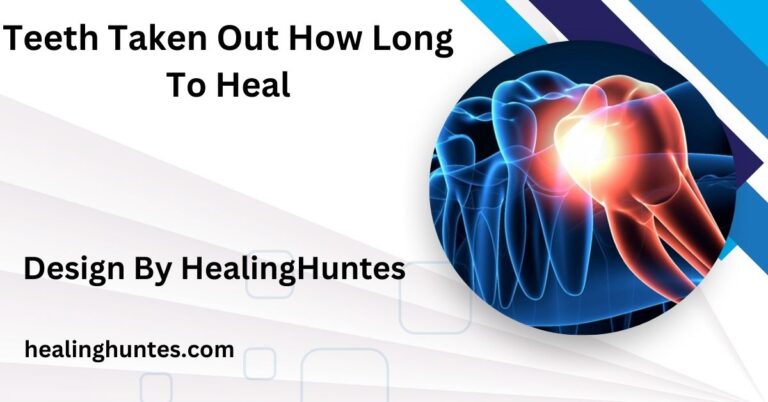Which Minerals Are Essential For Wound Healing – Essential Nutrients You Need!
Essential minerals like zinc, iron, and calcium play a crucial role in wound healing, from reducing inflammation to supporting tissue repair.
In this article, we’ll explore the minerals crucial for wound healing, how they contribute to recovery, and ways to incorporate them into your diet for optimal results.
Why Minerals Matter in Wound Healing:

Minerals are essential for wound healing because they aid in cell repair, collagen formation, immune function, and inflammation control. When the body is healing, these processes intensify, and a steady supply of minerals helps ensure cells can function at their best.
Key Minerals for Wound Healing:
Key minerals are essential for wound healing as they play unique roles in each stage of recovery. Zinc supports cell growth and immune function, making it essential for tissue repair. Iron aids in oxygen transport to injured areas, while calcium strengthens blood clotting and collagen formation. Copper and magnesium further promote skin repair and inflammation control, ensuring that wounds heal effectively and thoroughly.
Zinc: A Vital Mineral for Tissue Repair
Zinc is one of the most important minerals in wound healing. It plays a critical role in cell proliferation and collagen synthesis, which are crucial for forming new tissue. Zinc also helps the immune system function effectively, preventing infections that can delay healing.
- Sources of Zinc: Red meat, shellfish, nuts, and seeds are excellent sources of zinc.
- Role in Healing: Zinc strengthens the immune response, reduces inflammation, and supports cellular regeneration.
Also Read: How To Heal A Calf Strain Quickly – Is It Necessary!
Iron: Boosting Oxygen Transport for Healing:
Iron is essential for transporting oxygen in the blood, which is vital for wound healing. Adequate oxygen levels in the bloodstream are needed for cells to generate energy and repair tissue.
- Sources of Iron: Red meat, dark leafy greens, and beans are rich in iron.
- Role in Healing: Iron prevents anemia, improves cellular metabolism, and accelerates the body’s natural healing responses.
Calcium: Supporting Blood Clotting and Tissue Strength
Calcium is essential for wound healing because it plays a key role in blood clotting, which is the first step in the wound-healing process. Calcium also supports cell signaling and muscle function, which can be beneficial for patients recovering from surgeries or significant injuries.
- Sources of Calcium: Dairy products, almonds, and fortified plant-based milks.
- Role in Healing: Calcium aids blood clotting, promotes stable cell structures, and helps prevent excessive bleeding.
Copper: Enhancing Collagen and Elastin Formation:

Copper is another mineral that supports collagen synthesis, which is vital for building new skin tissue. Copper also works with zinc and vitamin C to form strong skin and blood vessel walls.
- Sources of Copper: Shellfish, nuts, seeds, and whole grains.
- Role in Healing: Copper strengthens connective tissue and skin elasticity, reducing scarring and promoting tissue stability.
Magnesium: Reducing Inflammation and Aiding Muscle Function:
Magnesium is crucial for over 300 biochemical reactions in the body, including protein synthesis, muscle function, and immune responses—all essential for wound recovery. It also helps manage inflammation, which can speed up the healing process.
- Sources of Magnesium: Nuts, seeds, leafy greens, and whole grains.
- Role in Healing: Magnesium calms inflammation, supports cell repair, and helps muscles relax.
The Healing Process and How Minerals Aid Each Stage:
Wound healing occurs in four primary stages: hemostasis, inflammation, proliferation, and remodeling. Minerals support each phase by enhancing blood clotting, cell repair, collagen formation, and reducing inflammation. Let’s look at how they contribute in each stage.
Also Read: How To Heal A Dog Wound Fast At Home – A Comprehensive Healing Approach!
Hemostasis:
Hemostasis is the initial phase when blood clots form to prevent further bleeding. Calcium and iron play crucial roles here, as they help blood clotting factors function correctly and enable oxygen delivery.
Inflammation:
During the inflammation phase, white blood cells work to clear debris and fight any infection at the wound site. Zinc and magnesium are critical here for supporting the immune response and managing inflammation levels.
Proliferation:

The proliferation phase is when new tissue forms and the wound closes. Zinc, copper, and magnesium are particularly important at this stage, as they aid in collagen formation, connective tissue strength, and cell repair.
Remodeling:
In this final stage, the tissue gradually strengthens, and any scar tissue remodels. Copper and calcium play a role in stabilizing new tissue, ensuring it’s durable and less prone to re-injury.
Nutritional Tips to Support Mineral Intake:
Eating a balanced diet rich in whole foods ensures your body receives the minerals it needs. Here are some practical tips to boost your mineral intake for better wound healing.
- Incorporate Variety: Include a mix of protein sources, leafy greens, nuts, and whole grains to cover a wide range of minerals.
- Focus on Absorption: Pair vitamin C-rich foods like citrus fruits with iron sources to enhance absorption.
- Limit Processed Foods: Highly processed foods may be low in minerals and high in inflammatory fats, which could delay healing.
FAQ’s
1. Which mineral is the most important for wound healing?
Zinc is often considered the most essential mineral for wound healing due to its role in tissue repair and immune support.
2. Can I take supplements for better healing?
Yes, supplements can be helpful, but it’s essential to consult with a healthcare professional for appropriate dosage and to avoid any mineral imbalances.
3. Is magnesium effective in reducing inflammation?
Yes, magnesium has anti-inflammatory properties, which can be beneficial for managing swelling and promoting faster recovery.
4. What foods should I focus on for better healing?
Foods like red meat, nuts, seeds, and leafy greens are high in zinc, iron, and magnesium, making them excellent for wound healing.
5. Can too much calcium slow down healing?
High calcium intake without balance can impact magnesium and zinc absorption, so it’s best to keep a balanced mineral intake.
Conclusion
Ensuring a diet rich in essential minerals is one of the best ways to support wound healing. Minerals like zinc, iron, calcium, copper, and magnesium play a significant role in cellular repair, immune function, and inflammation control—all crucial aspects of recovery. A well-rounded diet and, if necessary, targeted supplementation can help you heal faster and reduce the risk of complications.






